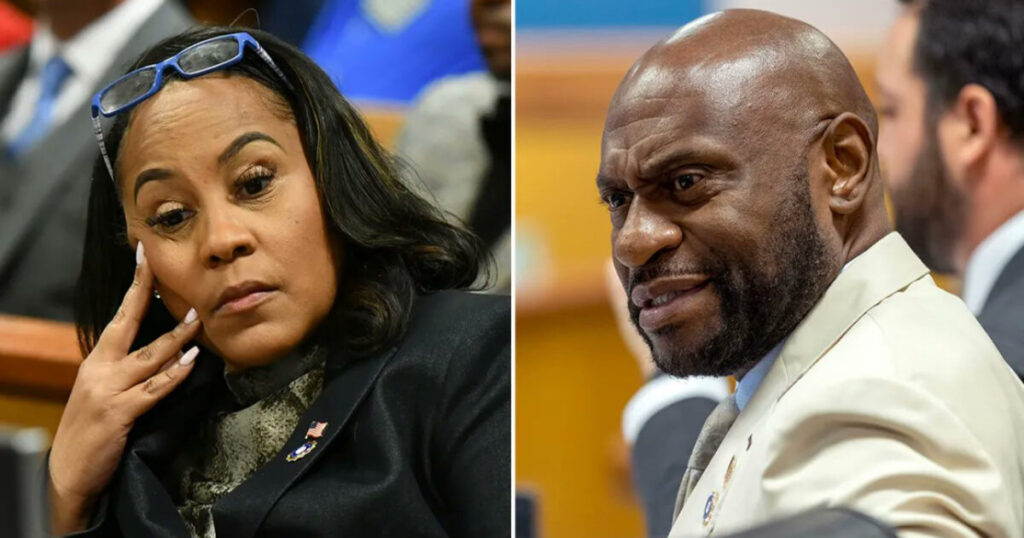In a recent development surrounding the Fulton County District Attorney’s office, DA Fani Willis made headlines by sending a letter to Jim Jordan, the Chairman of the House Judiciary Committee, requesting that her partner Nathan Wade’s deposition scheduled for this week be canceled. This demand comes in the context of Wade’s involvement in the high-profile RICO case against former President Donald Trump. Willis’s letter, which was subsequently made public by House Judiciary Republicans, raises significant concerns regarding the possible implications of Wade’s testimony, alleging that it could infringe upon the confidentiality and privileged information protected by the Fulton County Attorney’s Office.
Fani Willis took a firm stand in her correspondence, indicating that Wade’s potential testimony may force him to disclose sensitive information that should remain confidential due to the privileges held by her office. Specifically, Willis expressed her worries in the letter, stating that Mr. Wade would be compelled to share details that could violate the State Bar of Georgia’s professional conduct rules governing attorneys. With this argument, she is urging Jordan to retract the request for Wade’s appearances before Congress, painting the situation as a crucial battle for the integrity of her office’s legal processes.
This controversy is further deepened by the context of Nathan Wade’s previous withdrawal from the Trump RICO case. In March, Fulton County Superior Court Judge Scott McAfee ruled that while Willis could continue with her prosecution of Trump and his associates, Wade, who was serving in a pivotal prosecutor role, must resign to avoid an appearance of impropriety. The judge’s decision came after concerns were raised about both Willis and Wade’s entangled relationship, forcing Wade to step down from a case that has become a focal point in contemporary political and legal discourse.
In response to his resignation, Wade publicly emphasized his desire to support the prompt progression of the case, demonstrating a commitment to what he described as the integrity of democracy. His resignation was met with praise from Willis, who commended Wade for his courage and dedication to the investigation against alleged conspiracies to overturn the 2020 presidential election results in Georgia. However, Willis’s subsequent attempts to prevent Wade from providing testimony to Congress raise questions about transparency and the motives behind this rapid change in position, especially considering that the leader of the prosecution is now seemingly at odds with her former confidant.
Through her recent actions, Willis has sparked speculation and intrigue about what information her office may be hoping to protect. The shifting dynamics surrounding Wade’s involvement, his resignation from the RICO case, and the request for him to avoid testifying indicate a complex interplay of personal and professional factors at play. Observers are left to wonder what specific details might come to light should Wade be permitted to share his insights with congressional investigators, and what this could mean for the broader RICO case against Trump.
As this situation continues to evolve, the interplay of legal ethics, personal relationships, and high-stakes political maneuvering renders it a compelling narrative. The implications of Willis’s request to prevent Wade from testifying go beyond personal connections; they touch on the integrity of the legal process itself and raise broader questions about accountability and transparency within the Fulton County DA’s office. Ultimately, the public is left questioning what the full story entails, and whether the actions of Willis and Wade are shielding crucial information from Congress or protecting legitimate legal privileges necessary for the prosecution’s ongoing efforts in the significant RICO case.

